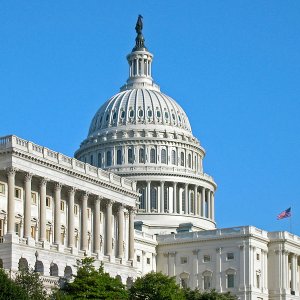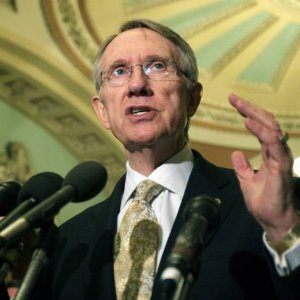Gaming Law Editor on Reid/Kyl Bill: "Unites Every State Interest Against It"

 A webinar held in recent days hosted by iGaming Business featured comments from Professor Joseph Kelly, Professor of Business Law at the State College at Buffalo and an associate of Catania and Ehrlich Law Offices. Kelly is the Co-Editor of Gaming Law Review and spoke on the specifics of a draft bill from Senate Majority Leader Harry Reid (D-NV) and UIGEA proponent Jon Kyl(R-AZ) that would permit internet poker in the United States, but eradicate other forms of online gambling. Read more about the bill.
A webinar held in recent days hosted by iGaming Business featured comments from Professor Joseph Kelly, Professor of Business Law at the State College at Buffalo and an associate of Catania and Ehrlich Law Offices. Kelly is the Co-Editor of Gaming Law Review and spoke on the specifics of a draft bill from Senate Majority Leader Harry Reid (D-NV) and UIGEA proponent Jon Kyl(R-AZ) that would permit internet poker in the United States, but eradicate other forms of online gambling. Read more about the bill.
Kelly started by saying that the draft bill, which has yet to be introduced formally, “unites almost every state interest against it.” He noted that the Treasurer of Massachusetts warned that if the bill went through, the Commonwealth would lose a significant chunk of its potential lottery profits. The bill could take shape during the upcoming lame duck session of Congress, which will likely last the balance of 2012.
Kelly reinforced what appears to be widely known: the bill would need to be attached to a must-pass piece of legislation in order to come to fruition. In a nutshell, it prohibits all online gambling except online poker in regulated jurisdictions and exempts horse racing, fantasy sports, and existing games authorized by states or tribes prior to May 1, 2012.
The concerns from the Massachusetts Treasurer stem from major limitations imposed on online lotteries. Kelly explained, “At most, a state’s online lottery could be operated daily. Internet scratch tickets would be prohibited… It would not allow the state of Delaware’s online gambling framework because this occurred after May 1, 2012. It would not allow New Jersey to continue its process of trying to regulate online gambling. It would not allow Massachusetts to legalize online poker, which it hopes to do in early 2013.”
 Why does the bill exist if it imposes hefty limitations and only allows online poker? Kelly cited the 2011 Justice Department Wire Act clarification, which said the 1961 law only applies to online wagering on sports: “Senators Reid (pictured) and Kyl feel the ruling will result in a major expansion of online gambling, inconsistent regulation, and no consumer safeguards.”
Why does the bill exist if it imposes hefty limitations and only allows online poker? Kelly cited the 2011 Justice Department Wire Act clarification, which said the 1961 law only applies to online wagering on sports: “Senators Reid (pictured) and Kyl feel the ruling will result in a major expansion of online gambling, inconsistent regulation, and no consumer safeguards.”
Preference for gaming licenses goes to established gaming outlets, which could indicate that states like Nevada stand to benefit the most. Kelly explained the process of applying for licenses: “For the first two years, a qualified body should apply clear and convincing evidence to make sure that all people getting licenses to operate online poker are of good character, have good financing, and have full disclosure.”
If a site accepted wagers from U.S. players after December 31, 2006, it would need to wait five years to receive a license unless it can show it did not violate U.S. law.
According to Kelly, the Reid/Kyl bill states that licensees cannot conduct gaming outside of the United States. If a licensee does so, it needs to create a separate entity and not co-mingle funds. States and tribes can opt in and out of the Federal framework as they choose. Houses of the state’s legislature must approve the decision.
Kelly also reviewed the tax specifics of the bill, saying that it has an “unusual” provision: “[There is a]16% poker activity fee payable by licensees on a monthly basis. 14% goes to states and tribes and 2% goes to the Feds. Of the 14%, 70% goes to the state where the player is playing from and 30% goes to the qualified body. The 2% could be used for the cost of administration, and Native Americans and problem gambling research would ultimately get a portion as well.”
 Kelly and others have favored the online poker bill undergoing a traditional legislative route as opposed to being attached as a rider to a must-pass measure similar to how the UIGEA became law in 2006. He argued, “This is the type of bill that should go before a Congressional committee. It should be marked up. If it can’t get approved by Congress, it should die a natural death.”
Kelly and others have favored the online poker bill undergoing a traditional legislative route as opposed to being attached as a rider to a must-pass measure similar to how the UIGEA became law in 2006. He argued, “This is the type of bill that should go before a Congressional committee. It should be marked up. If it can’t get approved by Congress, it should die a natural death.”
The aforementioned Justice Department Wire Act clarification seemingly gave the green light for states to offer online poker and other games: “Many states in 2013 will enact gambling legislation as Delaware has done,” Kelly told listeners. “Not doing so means the American gambler will continue to play online anyway, [but] we will not get any of the badly needed taxation revenue at a time when we could really use it.”
Near the end of the one-hour webinar, Kelly went over what concerned gambling companies can do if they’re not fans of the bill: “I would immediately contact my Representatives and Senators saying, ‘Do not let this legislation become law. This is not the way legislation should be enacted. If you want a Federal bill, let it go through the Congressional process.'”
Kelly added, “This bill borders on the irrational. Various entities could challenge this on the grounds that it’s not rational and violates due process… Any possibility of a challenge would be greatly increased when you look at the result of the state of New Jersey’s challenge against the restriction that only Nevada can have sports betting. If New Jersey is successful, then some of that reasoning might be applicable here.”
We’ll keep you posted on the latest on the Reid/Kyl bill throughout the lame duck session right here on PocketFives.
Want the latest poker headlines and interviews? Follow PocketFives on Twitterand Like PocketFives on Facebook. You can also subscribe to our RSS feed.




